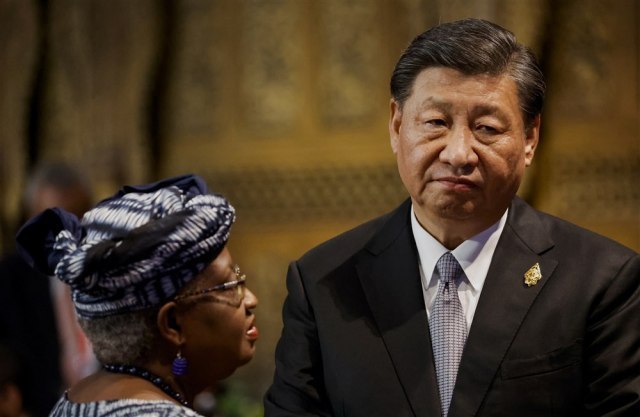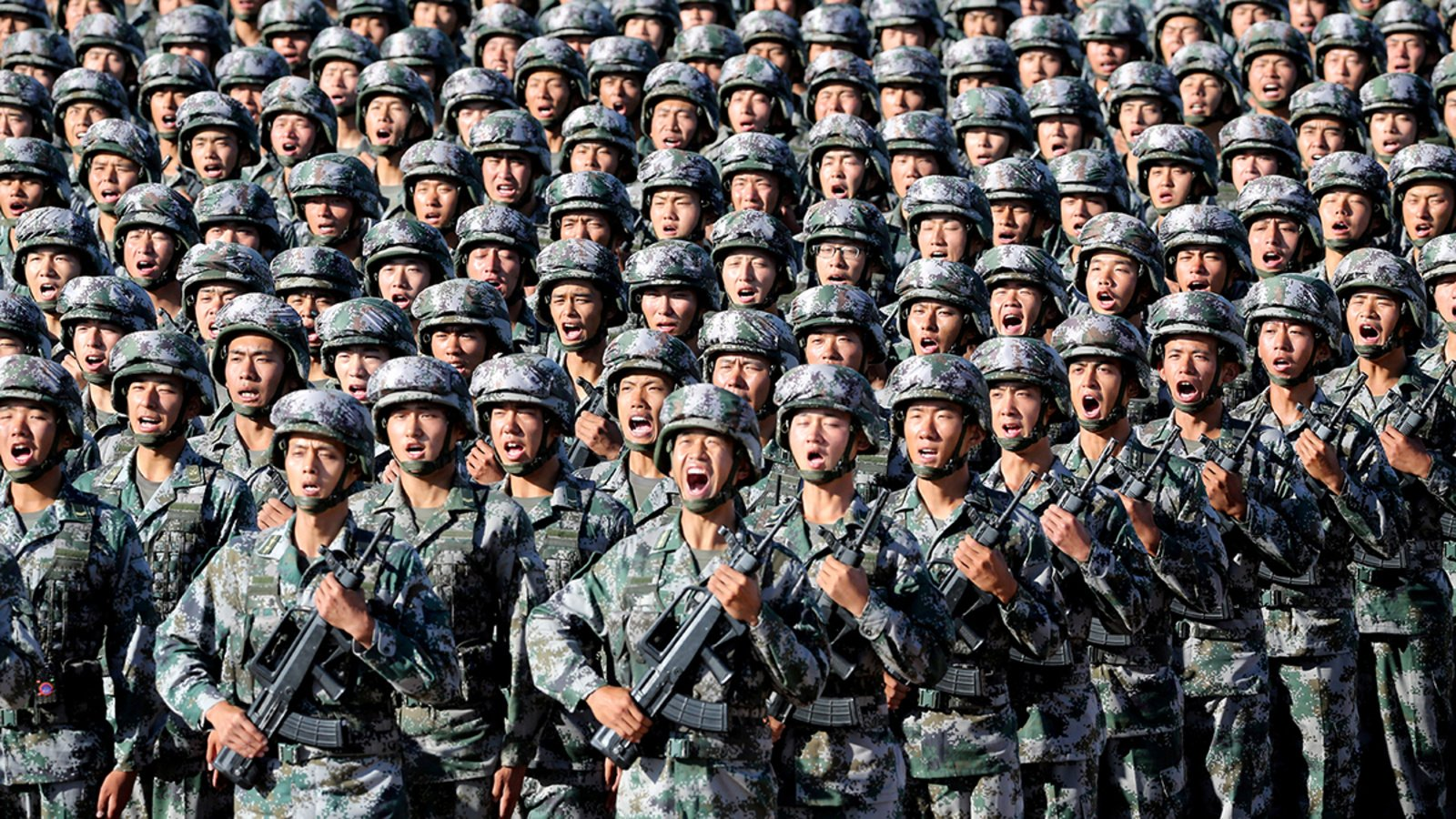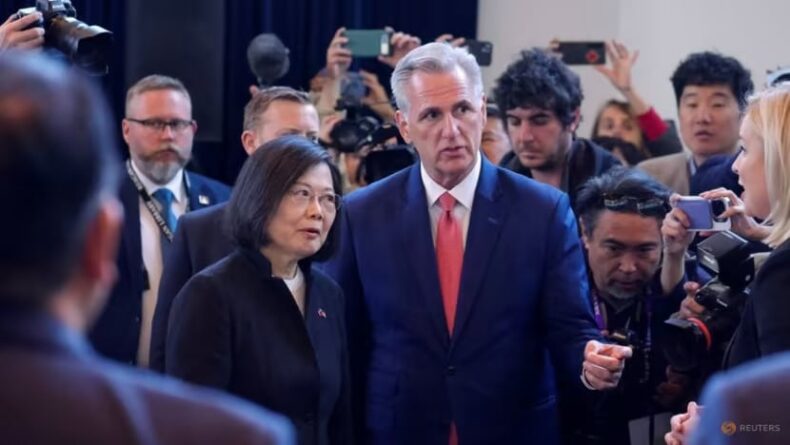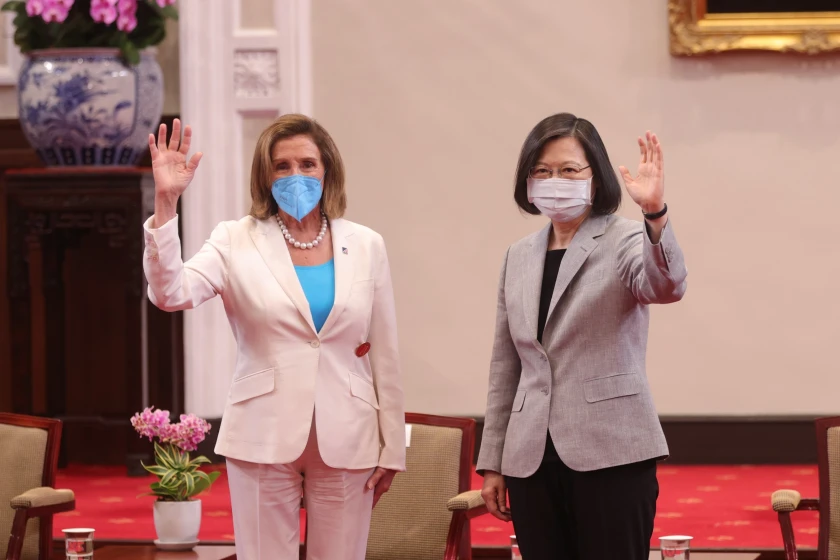U.S. House Speaker Kevin McCarthy is scheduled to meet with Taiwanese President Tsai Ing-wen in California on Wednesday. This meeting has drawn international attention due to the sensitive nature of the United States’ relationship with Taiwan and the possibility of Chinese retaliation. The meeting is part of a larger US effort to strengthen ties with Taiwan, which has drawn criticism from China, which regards Taiwan as a renegade province. McCarthy and Tsai Ing-meeting will be expected to cover a wide range of topics, including trade, security,
Image source : Taiwan Insight
Table of Contents
US relations with Taiwan
Over the years, the United States and Taiwan have had a complicated relationship. The United States recognized the Republic of China government, based in Taiwan, as China’s sole legitimate government until 1979, when it switched diplomatic recognition to the People’s Republic of China. The United States, on the other hand, has maintained unofficial relations with Taiwan, including economic, cultural, and military ties.
In recent years, the United States has sought to strengthen its relationship with Taiwan, which China has strongly opposed. The US has encouraged high-level visits between US and Taiwanese officials and has supported Taiwan’s participation in international organizations. Taiwan, for one, has worked hard to maintain its independence and global recognition as a sovereign state.
China regards Taiwan as a renegade province and has increased pressure on it, including military drills in the Taiwan Strait and pressure on other countries to cut ties with Taiwan. The situation remains a potential flashpoint in US-China relations, with both parties weighing their strategic interests against the risk of Chinese retaliation.

Image source : B29
Why is China angry
Taiwan is a highly charged issue for China’s ruling Communist Party and Chinese President Xi Jinping.
Since the defeated Republic of China government fled to the island in 1949 after losing a civil war with Mao Zedong’s communists, the People’s Republic of China has claimed Taiwan as its territory.
China has repeatedly urged US officials not to meet with Taiwanese leaders, interpreting such meetings as support for Taiwan’s desire to be seen as separate from China. Additionally, China has never renounced the use of force to seize democratically governed Taiwan, and in 2005, Congress passed legislation giving Beijing the legal basis for military action against Taiwan if it secedes or appears to be about to secede. These actions demonstrate the sensitive and complicated nature of the relationship between China and Taiwan, as well as the potential for conflict in the region.

Image source : Council on Foreign affairs
How will China react to the meeting?
After then-House Speaker Nancy Pelosi visited Taipei in August, China staged war games around the island and has threatened unspecified retaliation if the McCarthy meeting goes ahead.
While Taiwanese and US officials have stated that they have seen no unusual activity from China’s military in the run-up to the McCarthy-Tsai meeting, Taiwan is also on high alert for any further Chinese drills.
Taiwanese and American officials have also stated that holding the meeting outside of Taiwan may help temper China’s reaction. This move is seen as a way to reduce tensions and avoid any potential escalation. Over the last three years, China’s air force has been conducting frequent military drills near Taiwan, which has put the region on high alert. Taiwan refers to this type of activity as “grey zone” warfare, designed to test and wear out its forces. Although China’s air force has not flown into Taiwan’s airspace, it did launch missiles high above the island after a visit by Nancy Pelosi. The ongoing military activities in the region add to the complex and contentious relationship between China, Taiwan, and the United States.
Conclusion
The meeting between US House Speaker Kevin McCarthy and Taiwanese President Tsai Ing-wen has sparked controversy due to the sensitive nature of the US-Taiwan relationship and the possibility of Chinese retaliation. China has repeatedly urged the US not to meet with Taiwanese leaders, interpreting such meetings as support for Taiwan’s desire to be seen as distinct from China. While US-Taiwan relations have been complicated for many years, the US has recently sought to strengthen its relationship with Taiwan, which has heightened tensions with China. It is unclear how China will react to this meeting, but it is clear that Taiwan and the United States are taking precautions to avoid an escalation of conflict.
The situation highlights the delicate balancing act between the US’ strategic interests and the risk of Chinese retaliation, with Taiwan caught in the crossfire.














